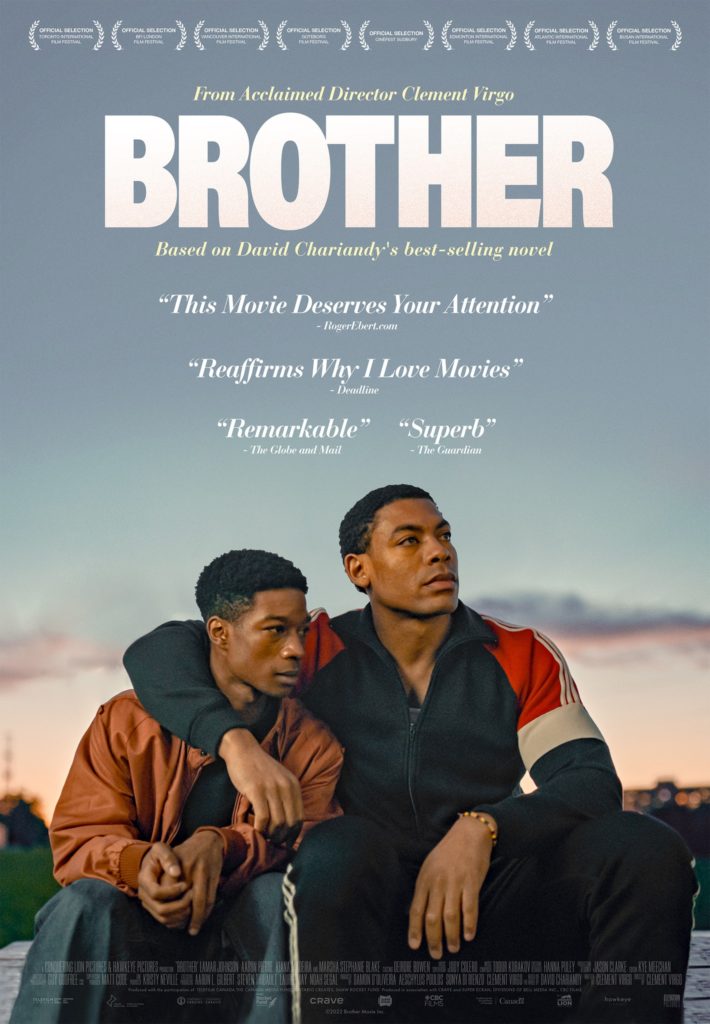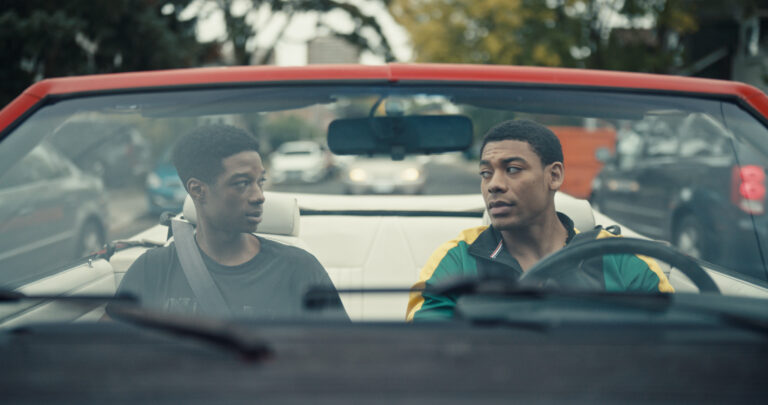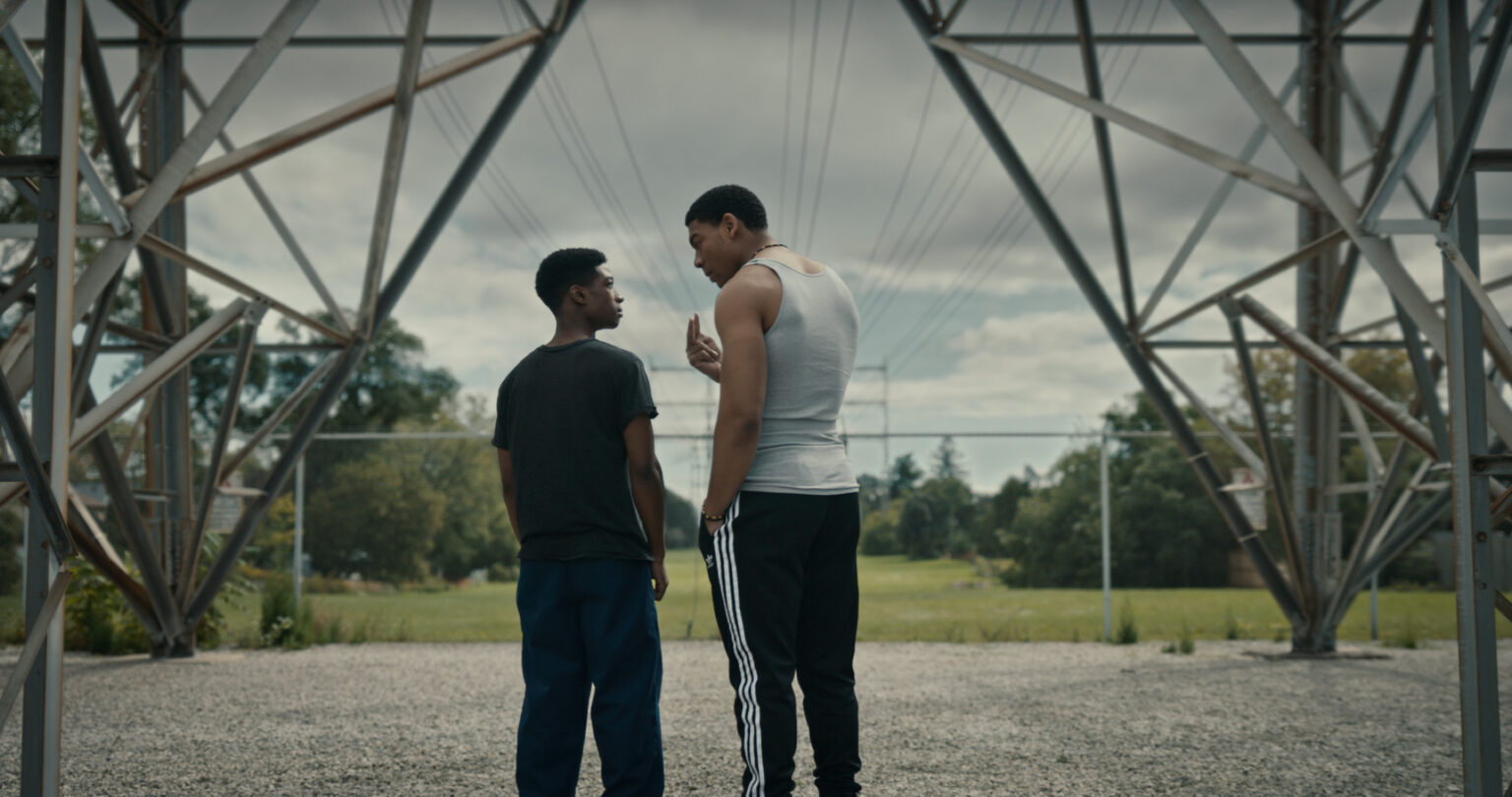This deeply moving film swept the Canadian Screen Awards with 12 wins
Clement Virgo’s feature Brother asks audiences to consider, who do you need in your life to make it whole? The emotionally gripping adaptation of David Chariandy’s novel deconstructs ideas of safety and fear in 1990s Scarborough. Two brothers, Michael and Francis (played by Lamar Johnson and Aaron Pierre), navigate coming of age in an environment that emphasizes the dichotomy between self-preservation and togetherness. The boys and their working single mother Ruth (Marsha Stephanie Blake) have a complicated relationship with their neighbourhood. Their community connects them to people who embrace and understand them, like Aisha (Kiana Madeira) but it can also act as a combat zone. Older brother Francis is forced to don an immovable, protective persona knowing that gentle Michael doesn’t possess those same qualities. Francis’ stoicism may be interpreted as fearlessness at first, but it is soon made clear by Pierre’s nuanced performance that his character is not impervious to pain. In his father’s absence, he is thrust into a head of the household role, and soon he leans on his chosen family to finally prioritize his own fulfillment. Vigro delves into the rift that is created within an interdependent family when one member steps away, or is lost.

Brother plays with the chronology of its storytelling to bolster the themes of grief and memory. Audiences are taken on a ride through Michael’s psyche as it wades back and forth between past and present. By tracking the brother’s relationship from young children to adults, the film examines how an obsession with the past can stunt one’s ability to move forward. The sensation of loss that Brother imparts lingers long after these pieces of Michael’s memory are strung together, as is the excruciating feeling of having to say goodbye to someone you still have so much to learn from. These disquieting ideas are foreshadowed by a memorable opening sequence of the boys delicately climbing transmission towers, Michael following Francis’ risky ascent step by step.

Virgo demonstrates acute sensibility when he tackles how fear-mongering and othering can impact a community. By carefully weaving together threads of poverty, mental health, and family, he cultivates a growing tension throughout the film. It is never forgotten that these characters are overburdened by circumstances beyond their control that threaten to rob them of their youth and freedom. Eventually, that is true for both of the brothers. The responsibility of caregiving instead of caring for oneself takes over, and the transformative power of grief takes its toll. Yet, Virgo still allows that ever-present uneasiness to give way to moments of tenderness and joy among the ensemble. He ultimately chooses to vitalize this story with the hope that a path to healing is possible alongside those that offer their compassion and support. Virgo’s solemn exploration of isolation and mourning is evened by his commitment to highlighting the enduring bonds of love.

Comments